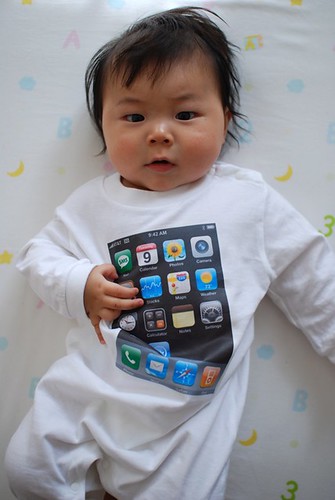Wednesday, 9:37am
23 December 2009
Googling my brain out
When techno-evolution is another case of change, adapt, shop and/or die

Ever since Google pushed other search engines such as Yahoo!, Ask Jeeves and Alta Vista out of the water, it has become the jumping off point for any question or query known to connected man, writes Camilla Grey.
A quick peek at Google‘s Year End ‘Zeitgeist’ report reveals how much the connected world relies on the service for answers to common issues. And, as the iPhone marketing has recently asserted ‘...there's an app for that’, insinuating that whatever you need to know, learn, work out, buy and find technology and the internet can help. Great.
But something strange is happening to my brain. Yes, Google helps me work out aspect ratio conversions. Yes, Google told me that Waitrose on Holloway Road opens at 8.30am. But, the other day, when I couldn't find my favourite pair of earrings, my instinctive response, my first move in solving the problem was to think: ‘I'll Google where my earrings are.’
So what does this mean? It’s all very well using the internet to solve problems we can’t figure out by ourselves, but the more we use it, the fewer problems we will be able to solve. Our brains, surely, will become less adept at things we’ve always taken for granted, such as remembering names, dates, locations, spellings and sums.
Sounds scary, but evolution is scary. One minute you're all scuttling around on four legs, huddling in caves for warmth, the next thing you know, your neighbour up the road is towering over you on two legs, warming their hands against a fire and thinking about inventing the wheel.
We’ve taken remembering things for granted because, apart from books and such, we’ve had to. But maybe, as that becomes increasingly unnecessary, think of what we will be able to do with all that extra head space! With petty problem solving and useless memories not such an issue, other parts of our brains, such as our imaginations, can develop and get better. Ray Kurzweil’s vision for The University of Singularity is precisely to harness this opportunity. As they say, ‘With the support of a broad range of leaders in academia, business and government, SU hopes to stimulate groundbreaking, disruptive thinking and solutions aimed at solving some of the planet’s most pressing challenges’. This kind of statement throws into question everything we thought about learning and academia. Even the notion of ‘knowledge’ becomes questionable and possibly irrelevant.
As a member of the generation that bridges the gap between those who grew up with the Internet and those who didn’t, the idea of Googling the location of my earrings feels unnerving. But what about the ankle-biters behind me? A colleague of mine recently watched his child attempt to work a TV using the touch action of an iPhone. The future is snapping at our heels and it’s going to be a case of change, adapt or die.
Eye is available from all good design bookshops and online at the Eye shop, where you can buy single issues. Take out a subscription, and get Eye delivered to your door, anywhere in the world.


